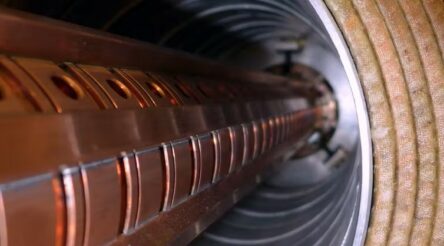Why review the Productivity Commission, just ditch this industrial dinosaur

By Peter Roberts
The federal treasurer Jim Chalmers has announced an overhaul the economic advisory body, the Productivity Commission, by broadening and deepening its work on economic policy and keeping a central focus on boosting productivity.
Well good luck with that.
Labor attempted to reform this bastion of neo-liberal economics once before – by moving staff from Canberra to Melbourne, Labor then hoped to make it more in touch with and responsive to industry rather than being so wedded to neo-liberal economic theory.
You know the old joke about the PC commissioner who visited an Aussie factory that was positively buzzing with innovation and productivity, only to remark: “I know it works in practice, but does it work in theory?”
Well that effort failed and the PC came out with the same focus on building on Australia's comparative advantages – not creating competitive advantage through industry policy – meanwhile tinkering in the way markets work through a focus on things like skills, childcare and deregulation.
Those things are all well and good. But let's face it – making markets work better is not going to create a critical minerals supply chain, nor see us manufacture computer chips, guided missiles or antibiotics in volume – none of which we currently do.
It is exactly the PC's advocacy of ‘productivity enhancing’ reforms rather than activist industry policies that has given Australia its fragile economic dependence on the export of unprocessed minerals and its dirth of complex manufacturing.
We all know the figures from the Harvard Atlas of Economic Complexity which measures the diversity and research intensity of our exports.
Here we have dropped from a ranking of 55 in the 1990s, which was disturbing enough, to 86 out of 133 countries.
The PC's opposition to any hint of industry policy has led been a massive policy failure over the last several decades.
Note that its' violent rejection of assistance to the car industry, for example, has not stopped it waving through massive subsidies for the fossil fuel sector.
Then there is its mantra of contestability of markets.
That gave us private VET providers who, of course, moved in on the courses that were cheap to deliver, often dishing out worthless diplomas.
The government-funded VET sector that has to provide technical courses that require equipment and computing lost the ability to cross-subsidise its operations.
That of course is straight from the neo-liberal playbook – so undermine public provision of service that it becomes less effective – thus opening the way for even more privatisations.
The commission has been giving the federal government the same advice for so long it has thoroughly hamstrung the Australian economy – really, we should just abolish the thing and start again.
In the past we had a Bureau of Industry Economics, now abolished along with an Australian Manufacturing Council, whose real world view balanced the dry thinking of the economists.
Unless the reforms are root and branch – including of the removal of multiple commissioners – and introduce some industry reality to the PC's thinking – Chalmers reforms will achieve nothing.
Picture: Productivity Commission
Further reading:
PRODUCTIVITY COMMISSION FIRES BLANKS IN REPORT ON BOOSTING INNOVATION
ELECTION 22 THE REAL ISSUES – THE INDUSTRY POLICY DOG THAT DIDN’T BARK BY ROY GREEN
@aumanufacturing Sections
Analysis and Commentary Awards casino reviews Defence Gambling Manufacturing News Online Casino Podcast Technology Videos





